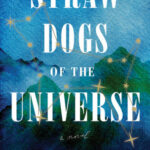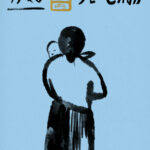Ye Chun
YE CHUN is a bilingual Chinese American writer and literary translator. Her debut story collection, Hao, was longlisted for the 2022 Andrew Carnegie Medal for Excellence in Fiction. She is also the author of two books of poetry, Travel Over Water and Lantern Puzzle; a novel in Chinese, Peach Tree in the Sea; and four volumes of translations. A recipient of an NEA Literature Fellowship, a Sustainable Arts Foundation Award, and three Pushcart Prizes, she teaches at Providence College and lives in Providence, Rhode Island.
Subscribe to our newsletter for news & events from Catapult.
Books
Straw Dogs of the Universe
A Novel
Longlisted for the Andrew Carnegie Medals of ExcellenceA harrowing and redemptive immigrant story for readers of Pachinko
A Chinese railroad worker and his young daughter—sold into servitude—in 19th century California search for family, fulfillment, and belonging in a violent new land
"Heaven and earth do not pick and choose.
They see everything as straw dogs."
A sweeping historical novel of the American West from the little-seen perspective of those who helped to build it, Straw Dogs of the Universe traces the story of one Chinese father and his young daughter, desperate to find him against all odds.
After her village is devastated by famine, 10-year-old Sixiang is sold to a human trafficker for a bag of rice and six silver coins. Her mother is reluctant to let her go, but the promise of a better life for her beloved daughter ultimately sways her. Arriving in America with the profits from her sale and a single photograph of Guifeng, her absent father, Sixiang journeys across an unfamiliar American landscape in the hopes of reuniting her family.
As she makes her way through an unforgiving new world, her father, a railroad worker in California, finds his attempts to build a life for himself both upended and defined by along-lost love and the seemingly inescapable violence of the American West. A generational saga ranging from the villages of China to the establishment of the transcontinental railroad and the anti-Chinese movement in California, Straw Dogs of the Universe considers the tenacity of family ties and the courage it takes to survive in a country that rejects you, even as it relies upon your labor.
Hao
Stories
Longlisted for the 2022 Andrew Carnegie Medal for Excellence in FictionAn extraordinary debut collection of short stories by a three-time Pushcart Prize winner following Chinese women in both China and the United States who turn to signs and languages as they cross the alien landscapes of migration and motherhood.
"Ye’s writing thrives when dissecting the contradictions in life and in language."—Javier C. Hernández, The New York Times
"Gentle . . . Slow, somber and often elegant, Hao thematically foregrounds language . . . Ye shows how words operate as weapons, comforts, memories and insufficient—if sometimes beautiful—representations of intent." —Tracy O’Neill, The New York Times Book Review
"The most common word in Chinese, perhaps, a ubiquitous syllable people utter and hear all the time, which is supposed to mean good. But what is hao in this world, where good books are burned, good people condemned, meanness considered a good trait, violence good conduct? People say hao when their eyes are marred with suspicion and dread. They say hao when they are tattered inside."
By turns reflective and visceral, the stories in Hao examine the ways in which women can be silenced as they grapple with sexism and racism, and how they find their own language to define their experience.
In “Gold Mountain,” a young mother hides above a ransacked store during the San Francisco anti-Chinese riot of 1877. In “A Drawer,” an illiterate mother invents a language through drawing. And in “Stars,” a graduate student loses her ability to speak after a stroke. Together, these twelve stories create "an unsettling, hypnotic collection spanning centuries, in which language and children act simultaneously as tethers and casting lines, the reasons and the tools for moving forward after trauma. "You’ll come away from this beautiful book changed” (Julia Fine, author of The Upstairs House).
Catapult | Counterpoint | Soft Skull
20 Jay Street #704
Brooklyn, NY 11201
646.926.0805 | contact@catapult.co
20 Jay Street #704
Brooklyn, NY 11201
646.926.0805 | contact@catapult.co






